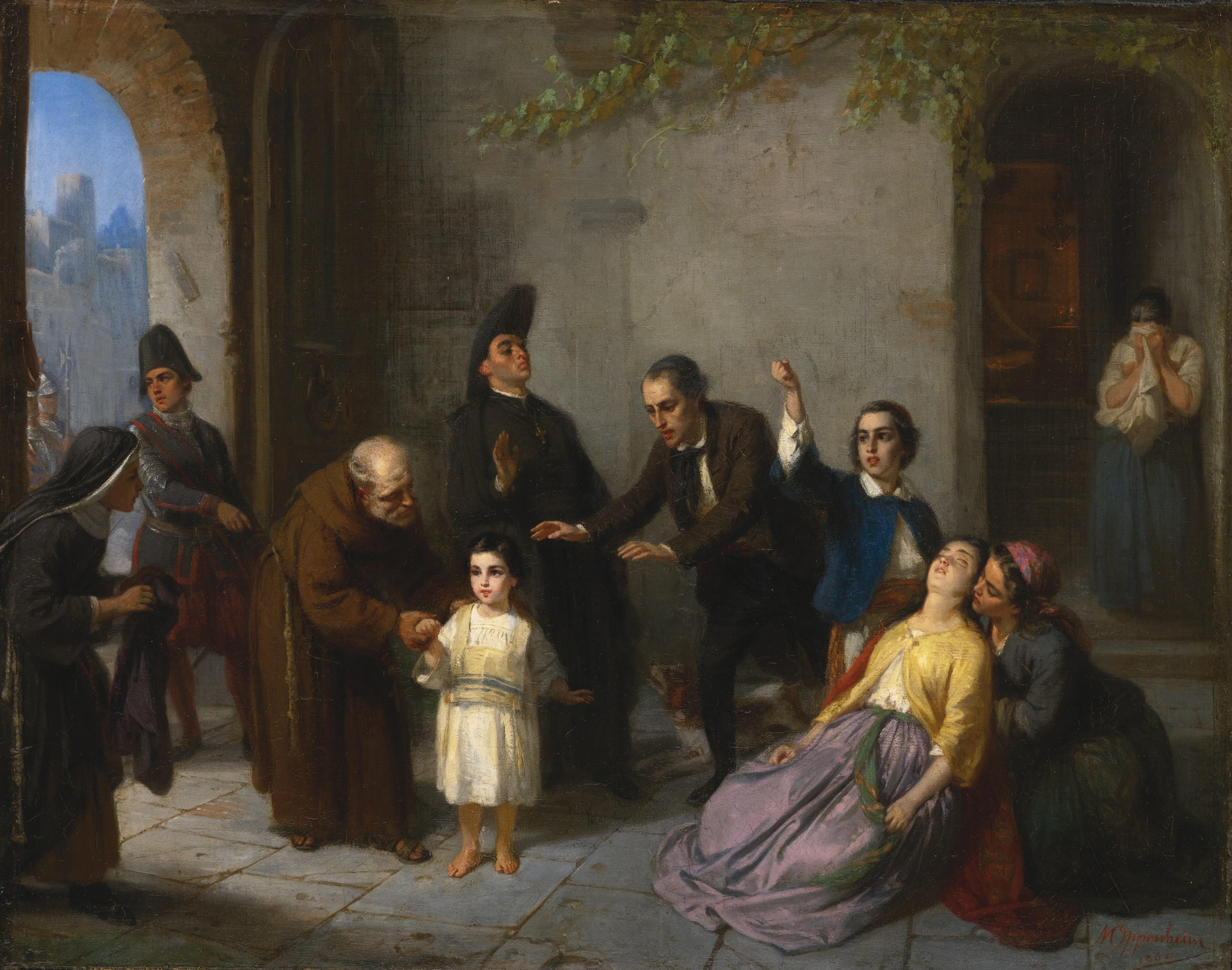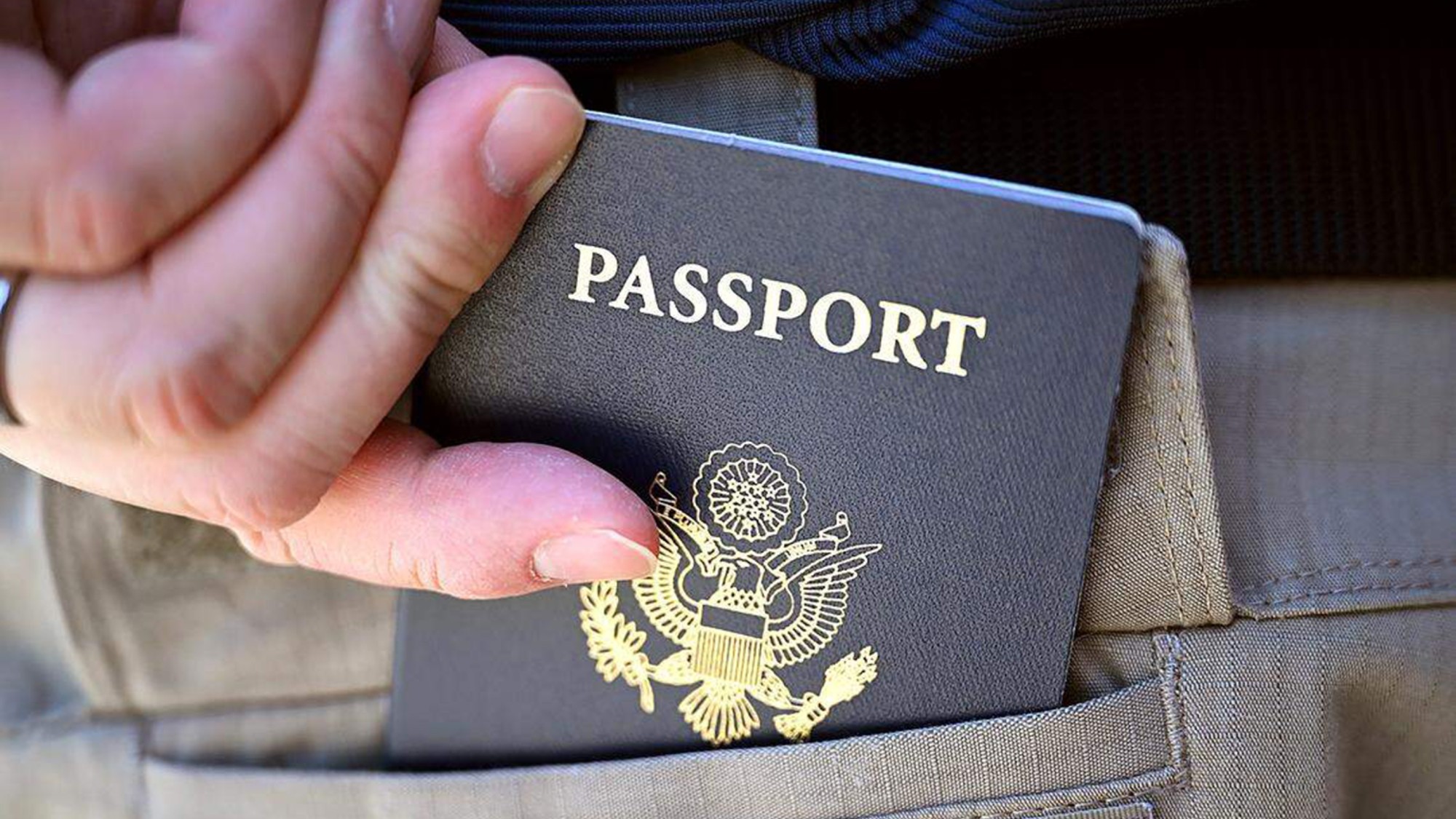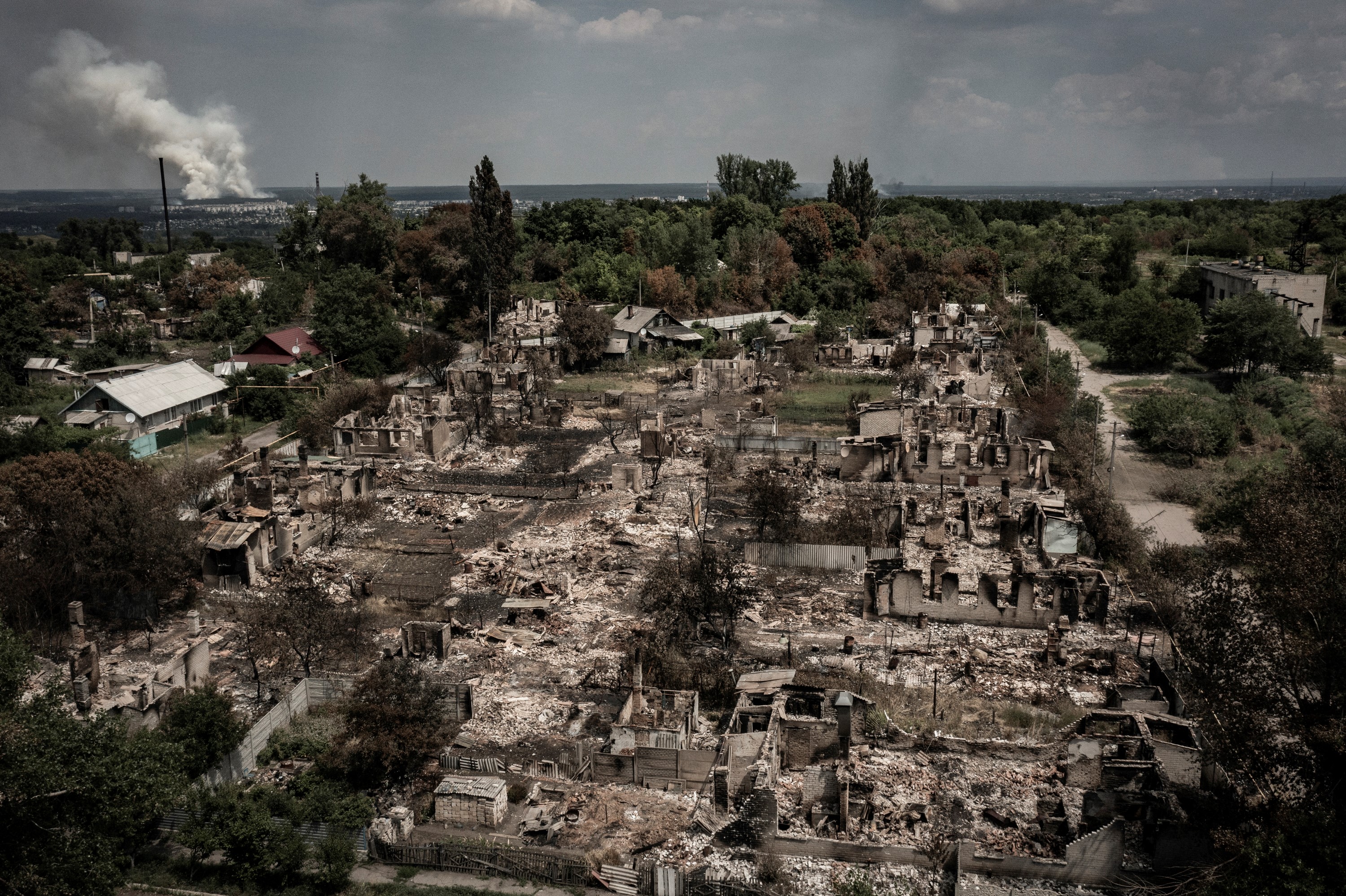The return of Catholic anti-liberalism
Must Catholics really choose between faith and modernity?


Catholic anti-liberalism is back.
Of course, it never really went away. The norms, practices, and beliefs that prevail and thrive in liberal democracies have never perfectly meshed with the dogma, doctrine, and theology of the Roman Catholic Church. Still, there has been an undeniable rapprochement between the two sides in recent decades — until now.
Back in the mid-19th century, popes furiously denounced liberalism, modernity, democracy, secularization, toleration of religious diversity, the separation of church and state, and even "Americanism." But by the close of the Second Vatican Council in 1965, the outright hostility to liberal modernity had softened. A reconciliation seemed possible, provided that liberal modernity was recast in broadly Catholic-Christian terms.
The Week
Escape your echo chamber. Get the facts behind the news, plus analysis from multiple perspectives.

Sign up for The Week's Free Newsletters
From our morning news briefing to a weekly Good News Newsletter, get the best of The Week delivered directly to your inbox.
From our morning news briefing to a weekly Good News Newsletter, get the best of The Week delivered directly to your inbox.
Thirteen years after the conclusion of Vatican II, Pope John Paul II began his pontificate with the ambition of developing and applying the reconciliationist themes of the council. He and his successor (Benedict XVI) did this over the next 35 years with various papal pronouncements, and above all in a series of encyclicals (teaching documents) that reinterpreted liberalism, democracy, capitalism, and modernity in such a way that they seemed broadly (or at least potentially) harmonious with the church.
The monthly magazine First Things, founded by Richard John Neuhaus in 1990, quickly became the place where John Paul II's reconciliationist ambitions would be championed and applied to questions of public life in the world's most powerful democracy. In the pages of the magazine (which I edited for a time in the early 2000s), the pope was routinely described as a liberal, while the encyclicals were interpreted (with varying degrees of persuasiveness) as broad endorsements of the Republican Party's center-right governing agenda.
What a difference a decade can make.
In the years since Neuhaus' death in 2009, the magazine has moved sharply away from its earlier reconciliationist position. Detecting signs that Pope Francis aims to assimilate the church to modern trends it considers deeply at odds with unchangeable Catholic doctrine, the magazine now regularly runs pieces that express dismay and displeasure at the Roman pontiff (something its editors never would have contemplated doing under John Paul or Benedict). Likewise alarmed by the Obama-era evolution of American liberalism in the direction of an increasingly intolerant deployment of state power to enforce policies that run afoul of the church's moral teachings, editor R.R. Reno came out in favor of President Trump in 2016 and has since written and published numerous pieces exploring the promise and prospects of an anti-liberal populist politics.
A free daily email with the biggest news stories of the day – and the best features from TheWeek.com
But nothing that's run in the magazine so far could have prepared readers for a book review that appears in the February 2018 issue. The author of the review, Romanus Cessario, O.P., forthrightly defends Pope Pius IX's decision in 1858 to kidnap and raise as a Catholic a 6-year-old Jewish boy who had been baptized without his parents' knowledge at age 1 by his Catholic nanny.
The kidnapping of Edgardo Mortara caused an international scandal at the time and raised considerable alarm in the United States, where it stoked already heightened fears of papal authoritarianism. (Those fears were rooted in anti-Catholic bigotry, but with the Vatican making a habit of denouncing the political and economic order of the United States, such bigotry was regularly reinforced by reality.) The Mortara affair also stands as a flagrant example of the church's distinctively toxic attitude toward Jews — an attitude that "Nostra aetate," Vatican II's historic statement on interreligious relations, went out of its way to repudiate. Whereas a pope would never have claimed he was forced by church teaching to kidnap a Protestant child being improperly educated in the faith, he insisted on precisely this about a baptized Jewish child — because the persistence of Jews in the world created an irritating problem for the church's favored version of salvation history (in which Christianity was supposed to supersede Judaism), because the thuggish (one might almost say Trumpian) illiberalism of the act demonstrated the church's willingness to stick a finger in the eye of reformers across the Western world, and because the lowly status of Jews in Europe at the time permitted it.
All of that was supposedly relegated to the past at the Second Vatican Council, when an overwhelming majority of the assembled bishops forthrightly condemned anti-Semitism and declared that Jews and Christians share a common patrimony. John Paul II built on those suggestions in his own efforts at Jewish-Christian dialogue, and Neuhaus took them even further, writing and publishing his own lengthy and moving essays in the magazine on the topic in which he suggested that, because "salvation is from the Jews" (John 4:19-22), there were theological grounds for the two communities to treat each other with mutual appreciation and respect as they move through time in disagreement about the place of the Messiah in God's plan.
But now First Things apparently has other ideas — or at least other priorities. In place of the effort to find a way to reconcile the church with the modern world, or different monotheistic faiths to reach understanding and common ground with each other, now the magazine appears eager to treat the church (perhaps excluding the current pope) as a singular refuge from the moral depredations closing in around it in every direction. Everywhere the totalitarian logic of liberalism strengthens its grip, forcing the children of God to conform to a system that increasingly demands obedience to manmade laws that lack any discernable connection to the law of God as revealed in scripture, authoritatively preserved and taught by the magisterium, delineated in the catechism, and codified in the system of canon law.
Catholicism or liberal modernity — that, increasingly, is the decision First Things places before its readers.
The case for the church is simple and (for some) compelling: It possesses an authority so absolute it can even force the hand of a reluctant pope, compelling him to declare (in the words that provide the title of Cessario's review) "Non Possumus" — "we cannot" give the child back to his parents. Much as we may wish to, Pius might have said, God has other plans. Providence led the Mortara boy to be baptized by his nanny. Church doctrine, canon law, and the laws of the papal states allowed and required him to be taken and catechized as a Catholic. That was God's will. The pope had no choice.
But of course he had a choice — just as First Things had a choice in whether to publish a review that both treats an authoritarian cleric as some kind of theological hero and exemplifies the bloodlessly legalistic form of the faith that Pope Francis has so often justly decried.
To judge by his anguished statement written in response to the controversy surrounding the review, Reno personally considers the Mortara episode a "stain on the Catholic Church" and Pius' actions "wildly imprudent." And yet he chose to publish Cessario's brief in favor of the kidnapping (just as some on the right who've been cheering on First Things' latter-day flirtation with Catholic Integralism have risen up in passionate defense of it). I suspect that's because, however troubling it might sometimes be even to its own editor, First Things has been trending in this direction for some time — toward the defensive, illiberal stances that marked the church through so many of the decades separating the French Revolution from the early 1960s.
With that darkly anti-modern outlook Cessario's review fits in quite nicely. Whether it has any hope at all of engaging productively with the wider world is another question altogether.
Damon Linker is a senior correspondent at TheWeek.com. He is also a former contributing editor at The New Republic and the author of The Theocons and The Religious Test.
-
 US citizens are carrying passports amid ICE fears
US citizens are carrying passports amid ICE fearsThe Explainer ‘You do what you have to do to avoid problems,’ one person told The Guardian
-
 All roads to Ukraine-Russia peace run through Donetsk
All roads to Ukraine-Russia peace run through DonetskIN THE SPOTLIGHT Volodymyr Zelenskyy is floating a major concession on one of the thorniest issues in the complex negotiations between Ukraine and Russia
-
 Why is Trump killing off clean energy?
Why is Trump killing off clean energy?Today's Big Question The president halts offshore wind farm construction
-
 Bari Weiss’ ‘60 Minutes’ scandal is about more than one report
Bari Weiss’ ‘60 Minutes’ scandal is about more than one reportIN THE SPOTLIGHT By blocking an approved segment on a controversial prison holding US deportees in El Salvador, the editor-in-chief of CBS News has become the main story
-
 Has Zohran Mamdani shown the Democrats how to win again?
Has Zohran Mamdani shown the Democrats how to win again?Today’s Big Question New York City mayoral election touted as victory for left-wing populists but moderate centrist wins elsewhere present more complex path for Democratic Party
-
 Millions turn out for anti-Trump ‘No Kings’ rallies
Millions turn out for anti-Trump ‘No Kings’ ralliesSpeed Read An estimated 7 million people participated, 2 million more than at the first ‘No Kings’ protest in June
-
 Ghislaine Maxwell: angling for a Trump pardon
Ghislaine Maxwell: angling for a Trump pardonTalking Point Convicted sex trafficker's testimony could shed new light on president's links to Jeffrey Epstein
-
 The last words and final moments of 40 presidents
The last words and final moments of 40 presidentsThe Explainer Some are eloquent quotes worthy of the holders of the highest office in the nation, and others... aren't
-
 The JFK files: the truth at last?
The JFK files: the truth at last?In The Spotlight More than 64,000 previously classified documents relating the 1963 assassination of John F. Kennedy have been released by the Trump administration
-
 'Seriously, not literally': how should the world take Donald Trump?
'Seriously, not literally': how should the world take Donald Trump?Today's big question White House rhetoric and reality look likely to become increasingly blurred
-
 Will Trump's 'madman' strategy pay off?
Will Trump's 'madman' strategy pay off?Today's Big Question Incoming US president likes to seem unpredictable but, this time round, world leaders could be wise to his playbook
